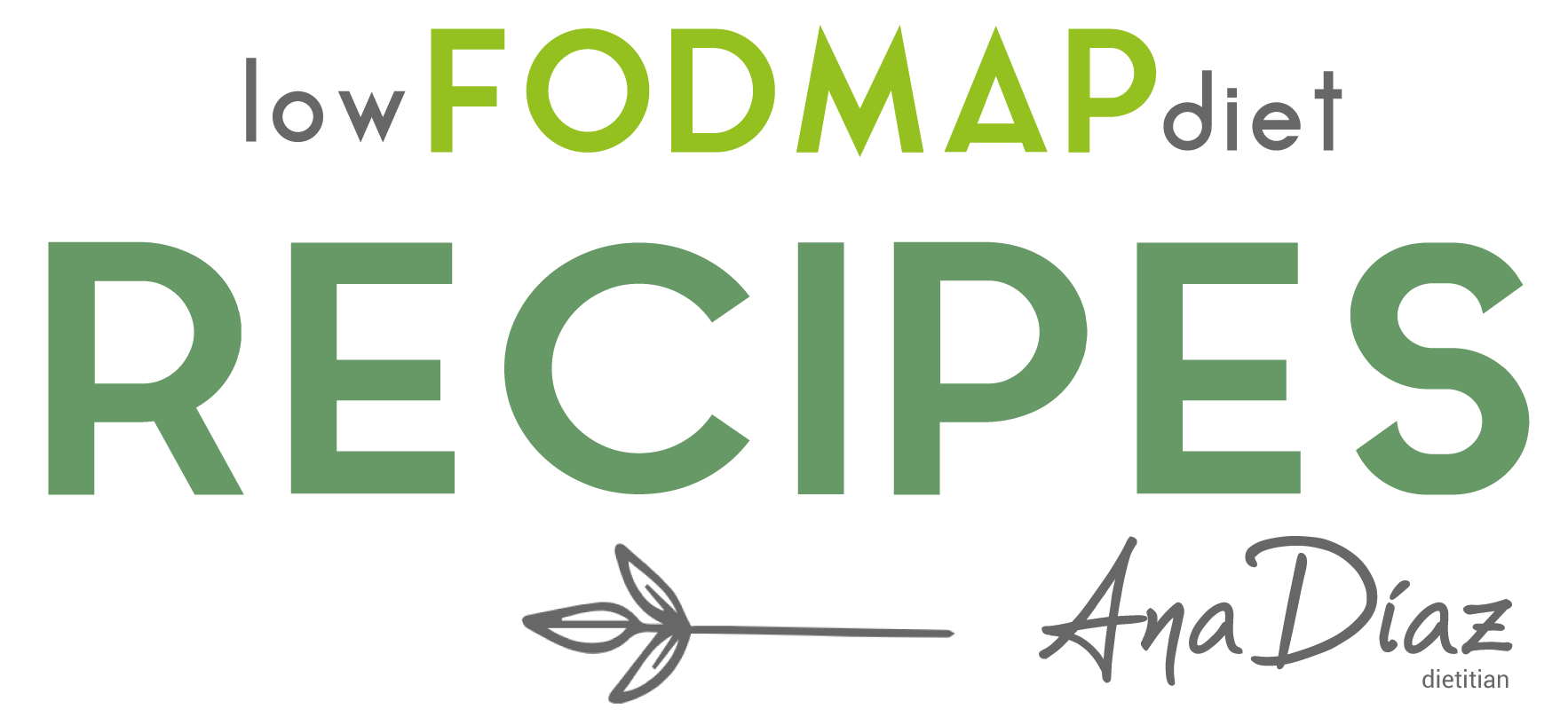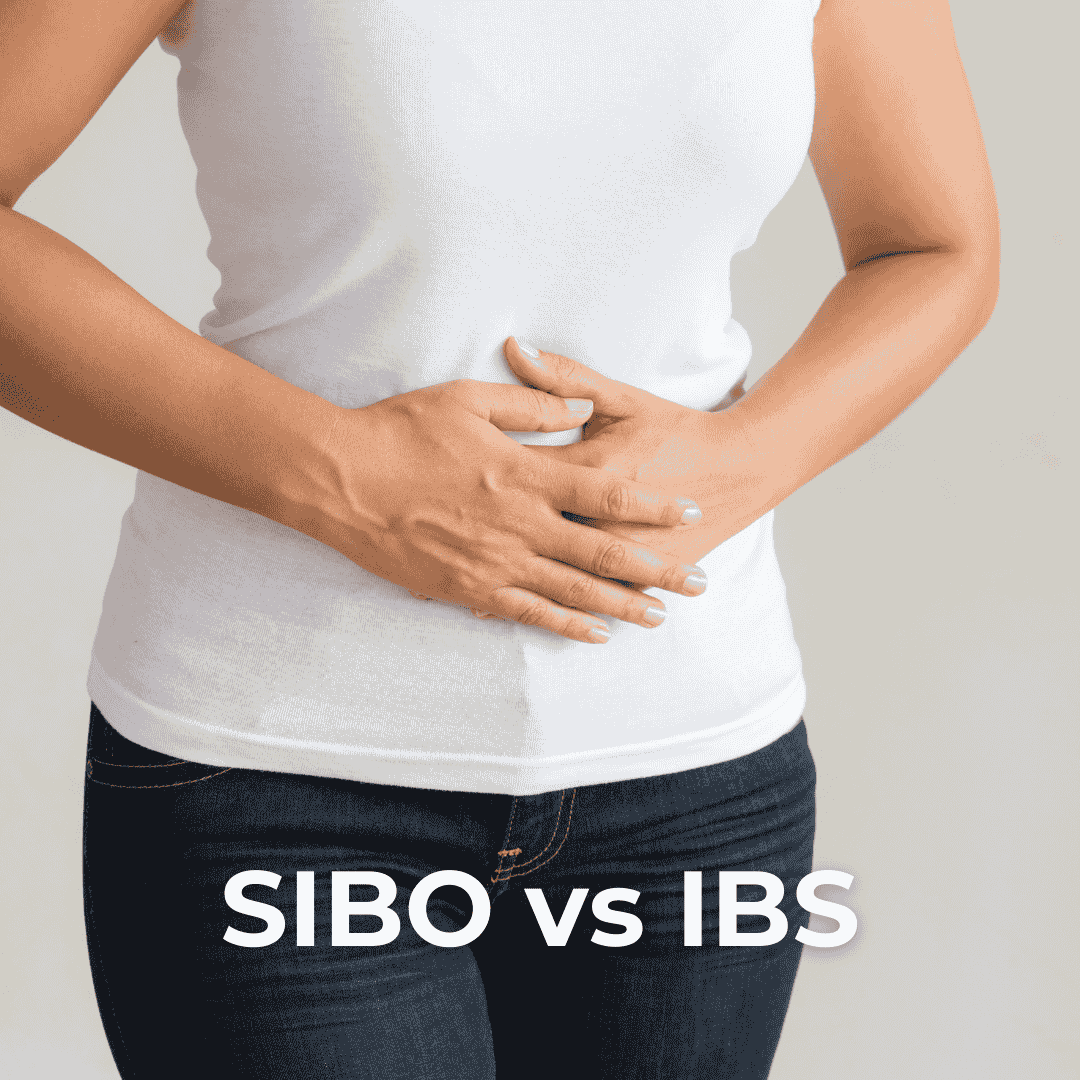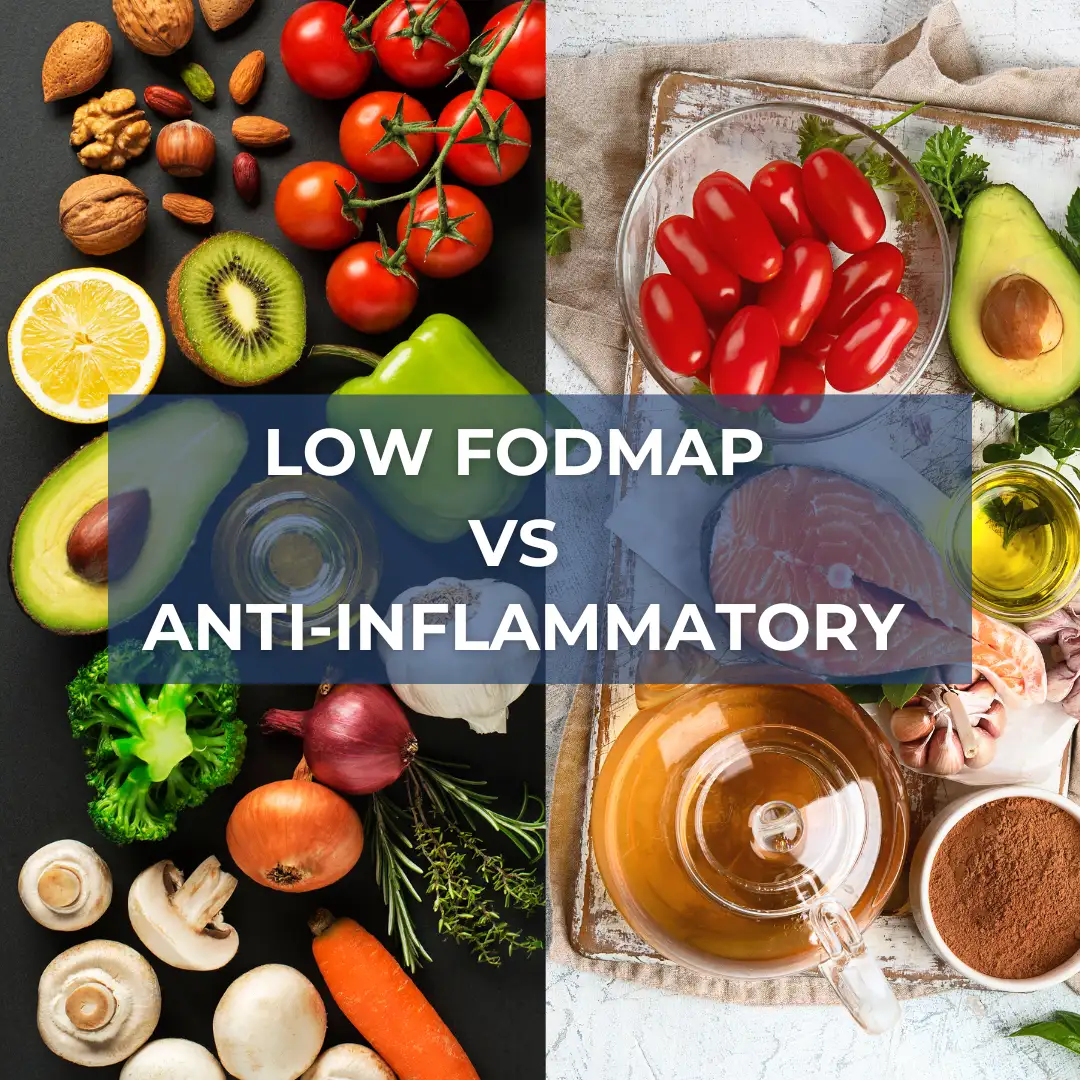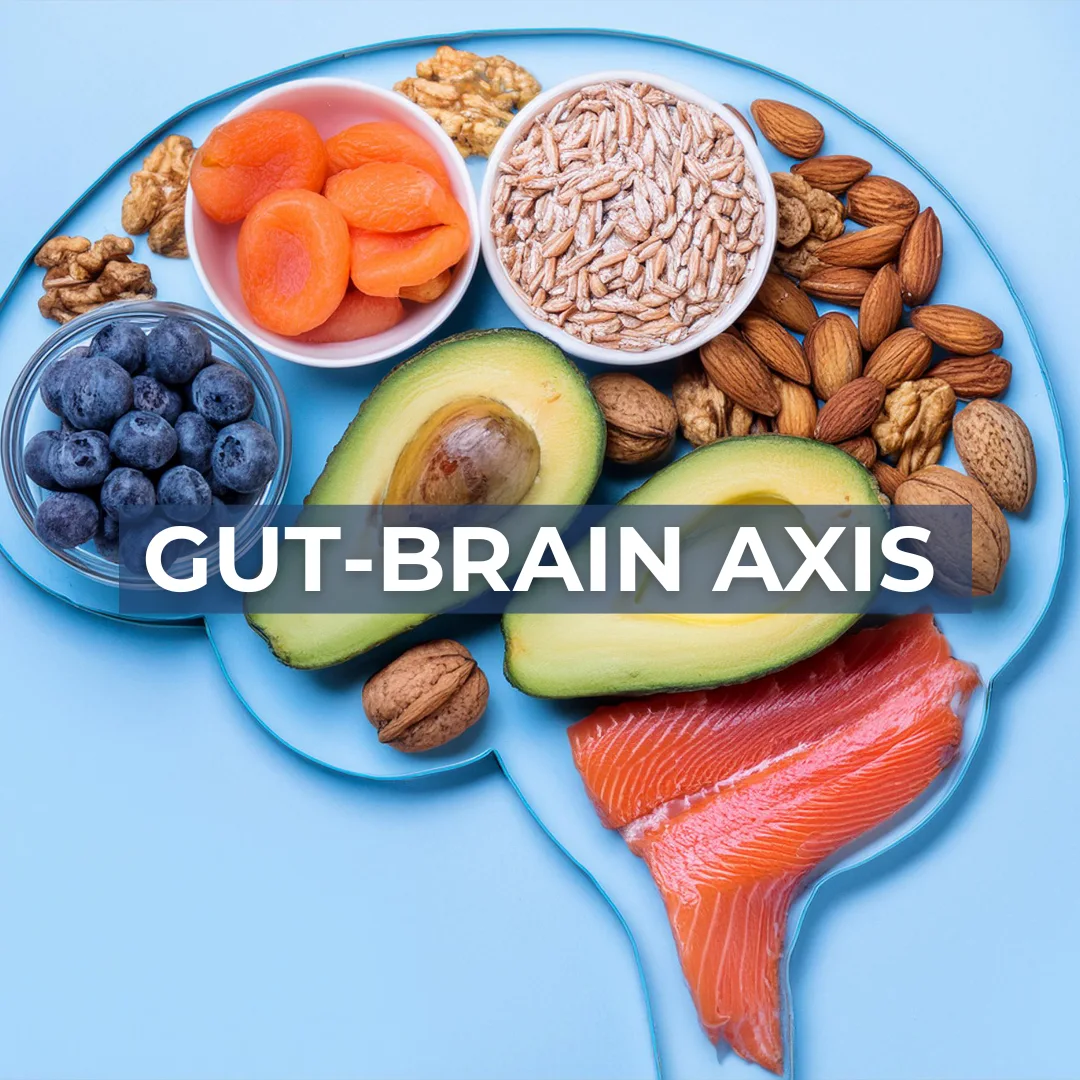Introduction: You’re Not Alone in This
If you’re constantly dealing with bloating, discomfort, unpredictable bathroom habits, or that “why is my gut like this?” feeling, you’re not alone. Many people struggle for months or even years without a clear diagnosis, feeling frustrated and unheard.
Two common culprits behind ongoing digestive symptoms are IBS (Irritable Bowel Syndrome) and SIBO (Small Intestinal Bacterial Overgrowth). They often look and feel very similar on the surface, which can make it difficult to know what’s really going on inside your gut.
In this article, we’ll walk you through:
- The main differences in symptoms between SIBO and IBS
- How to get an accurate diagnosis
- What your treatment options look like
- And how to start feeling better, one step at a time
Let’s dig into the root of the issue, literally!
What Are IBS and SIBO? Understanding the Basics
Before we dive into symptoms, let’s break down what these two acronyms actually mean.
What is IBS (Irritable Bowel Syndrome)?
IBS is a functional gut disorder. That means your digestive system looks normal on scans and tests, but it doesn’t work quite right.
People with IBS often deal with:
- Bloating
- Gas
- Abdominal pain or cramps
- Diarrhea, constipation, or both
It’s chronic, meaning symptoms come and go over time. The causes aren’t fully understood, but we know stress, diet, the gut-brain connection, and gut bacteria all play a role.
IBS doesn’t cause damage to your gut lining, but it can seriously affect your quality of life.
What is SIBO (Small Intestinal Bacterial Overgrowth)?
SIBO happens when too many bacteria start growing in the small intestine, where they’re not supposed to be.
These bacteria ferment the food you eat (especially carbs) leading to:
- Excessive gas
- Bloating that worsens throughout the day
- Diarrhea or constipation
- Nutrient deficiencies
- Fatigue or brain fog
Unlike IBS, SIBO is a specific condition with an underlying cause (bacterial overgrowth) and can usually be diagnosed with a breath test.
Symptoms of SIBO vs IBS: The Subtle (But Important) Differences
Here’s where things get tricky; SIBO and IBS often share similar symptoms. That’s why people often get misdiagnosed, or bounce between doctors without answers.
Let’s look at the key symptom differences so you can begin to piece your puzzle together.
Overlapping Symptoms
Both SIBO and IBS can cause:
- Bloating
- Abdominal discomfort
- Changes in bowel habits (diarrhea, constipation, or both)
- Gas
- Cramping
And both can leave you feeling like your gut is just… not happy.
So how can we tell them apart?
Symptoms That Point to SIBO
Here are some clues that SIBO might be behind your symptoms:
- Bloating gets worse as the day goes on, especially after meals
- You feel full very quickly, even with small meals
- You experience nutrient deficiencies (like low B12 or iron)
- You often have foul-smelling gas or stools
- You have a history of food poisoning, surgeries, or gut motility issues
- You feel tired or “foggy” after eating
- You’ve tried an IBS diet (like low FODMAP) but still feel awful
Symptoms That Lean More Toward IBS
These signs are more commonly associated with IBS:
- Symptoms started after a stressful life event or emotional period
- Pain improves after a bowel movement
- Bloating isn’t as severe or doesn’t change throughout the day
- No sign of nutrient deficiencies
- No clear response to antibiotics or antimicrobial herbs
- Stool tests and labs often come back “normal”
Still confused? Don’t worry, we’ll talk about how to get a proper diagnosis next.
Getting a Diagnosis: How to Know What You’re Really Dealing With
You deserve answers, and the good news is, there are ways to figure this out.
Start With a Symptom Journal
Keeping a journal of:
- What you eat
- How you feel (physically and emotionally)
- Bowel habits
- Energy and mood
…can help your practitioner (and yourself!) start connecting the dots.
Ask for the Right Tests
If SIBO is suspected, your doctor or dietitian might suggest:
- Lactulose or glucose breath test: measures gases (like hydrogen and methane) produced by bacteria in the small intestine.
- Nutrient panels to check for deficiencies
- Stool tests (to rule out other conditions)
IBS, on the other hand, is diagnosed by ruling out other causes and using criteria like the Rome IV criteria, which look at symptom patterns.
⚠️ Important: Some people with IBS actually have underlying SIBO, so the two can overlap!
Treatment Options: Taking Back Control of Your Gut
The good news? Whether it’s SIBO or IBS (or both) you’re not stuck. There are effective strategies to help you feel better, improve your quality of life, and reconnect with your body.
Treating SIBO
Treatment often includes a combination of:
- Antibiotics or herbal antimicrobials to reduce bacterial overgrowth
- A temporary low FODMAP or low fermentation diet
- Addressing root causes like poor motility or previous gut infections
- Supporting your gut with probiotics (used strategically)
- Rebuilding the gut lining and digestion with supportive supplements
SIBO treatment is usually structured in phases, and working with a qualified practitioner can make all the difference.
Managing IBS
With IBS, the focus is often on long-term symptom management and lifestyle support, including:
- The Low FODMAP Diet, customized to your needs
- Stress reduction techniques (like yoga, mindfulness, breathwork)
- Gentle exercise, which improves gut motility
- Improving sleep hygiene
- Tracking and addressing food sensitivities
- Using gut-directed hypnotherapy (yes, it’s a thing, and very effective!)
Working on your gut-brain connection is often key for IBS recovery.
Final Thoughts: You’re Not Crazy, and You’re Not Alone
If you’ve been feeling dismissed, confused, or overwhelmed by your symptoms, please know that what you’re feeling is real.
Whether it’s SIBO, IBS, or a mix of both, there is a path forward. The most powerful thing you can do is to start tuning into your body, getting curious, and seeking support from someone who listens, really listens.
As a dietitian specialized in the Low FODMAP Diet and gut health with a 360° approach, I’m here to support you in your healing journey. Together, we can explore not just food, but also stress, sleep, movement, and your unique gut microbiome, because healing happens when we look at the full picture.
Want to know if your symptoms are more like SIBO or IBS? Feel free to reach out or book a discovery call; I’d love to help you find clarity.





